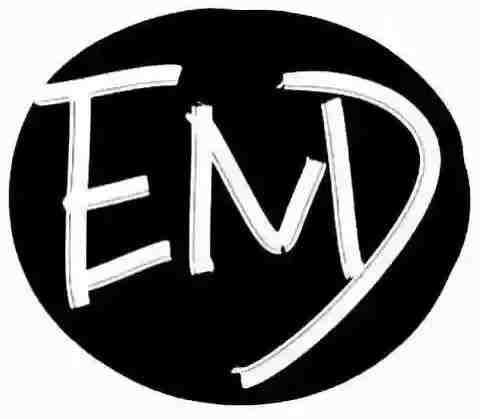爱因斯坦“信仰与上帝”亲笔信值一百万美元吗

2018年10月12日,星期五
陌上美国 欢迎关注
欢迎关注

作为当代最伟大的物理学家,爱因斯坦一生谦卑而孜孜不倦地探索真理。他认识到科学的局限性“科学只能确定是什么,而不能确定应该是什么”(Science can only ascertain what is, not what should be)。
与他广为流传的科学成就相比,他在信仰方面的深入研究和独到的见解却鲜为人知。很多人一直以为这个提出“相对论”的大科学家是个无神论者。
1954年1月, 在他的去世的前一年,阿尔伯特·爱因斯坦读完朋友推荐的德国宗教哲学家埃里克·盖特坎(Erik Gutkind)的著作《选择生活:圣经呼吁的反叛》(Choose life: The Biblical Call To Revolt)之后,给作者写了封信, 质疑人化的神和他所挑选子民的想法。

在信的开头,爱因斯坦写道,他和盖特坎有类似的目标,如 "远离自我中心的欲望”。但是物理学家不同意盖特坎书中的一些宗教观点。
爱因斯坦写道:“上帝对我来说只不过是人类弱点的表达和产物, 圣经是一个充满光荣、但原始且相当幼稚的传说。无论多么细致入微的解说,也不足以改变我的想法。”
爱因斯坦也反对犹太人是被上帝特选的概念,虽然他“欣然”属于犹太人。
这封信“关注自人类意识诞生以来人们关心的核心主题”,《新闻周刊》声明, “这是宗教与科学辩论中明确的声明之一”。
正如华盛顿邮报在1985年的文章中所指出的那样, 爱因斯坦曾在1931年的一篇文章中写到,他“不能想象一个上帝会奖励和惩罚生物, 或者愿意有类人的经历”。他认为“人化的神”是一个“大木偶”。
那篇文章继续说:“我不能也不愿意想象一个肉体死亡的人会复活。”相反, 这位科学家写道,他相信在自然界的秩序和宇宙法则中发现、敬畏美丽的 “宇宙宗教”(cosmic regilion)。
虽然爱因斯坦不相信造物主和圣经中写的“上帝”,但他很尊重“宗教天才”借由圣经向人们展示道德行为。爱因斯坦的“上帝”在物理学定律中被揭示出来,但他从所有宗教圣人那里学到伦理道德。
现在,如果你手头有足够现金,你就可以买到这封亲笔信了。2018年12月4日下午2点,这封手迹将在纽约市的克里斯蒂拍卖行拍卖,起拍价100万美元。从11月30日开始供参拍者预览。
在向《新闻周刊》发表的一份声明中, 克里斯蒂表示“很荣幸”出售这封信, 他是在2012年从Ebay上花了大约300万美元才买到的。
普林斯顿, 3.1.1954
亲爱盖特坎,
在布劳威尔再三建议下,我读了你的书,受益匪浅。非常感谢你借书给我。让我吃惊的是:在看待生命和人类社区的观点上,我们有很多共同点。远离以自我为中心的欲望,强调纯粹的人性使生活变得美丽而高贵的个人理想。这种不太美国化的态度让我们惺惺相惜。
不过,要不是布劳威尔建议,我永远不会细读你的书,因为它是用我无法理解的语言写成。“上帝”这个词对我来说只不过是人类软弱的表达和产物,圣经是一个充满光荣、但是十分初级而且幼稚的传说。无论多么细致入微的解读,也不足以改变我的看法。对我来说,犹太教和其他宗教一样,是幼稚的迷信的化身。犹太人和其他所有的人种在我看来没啥本质区别。虽然作为犹太民族中的一员, 他们的思想对我有很深的亲和力。就我的经验来看,他们也不比其他人类群体优秀,虽然他们因为弱势而没有受到最致命的病魔的侵蚀。否则我看不出来任何他们“被选择”的理由。
总的来说,我感到痛苦的是,你宣称一个特权立场,并且试图用两堵高傲的墙来捍卫它:一个外在的人和一个内里的犹太人。这么说来,作为一个你所说的人,可以声称不受广为接受的因果性的束缚;而作为犹太人,则可以把一神论当作理所当然的特权。正如我们神奇的斯宾诺莎首度一针见血地指出的那样,有限的因果性根本上就不是因果性。何况一神论的垄断性在原则上并没有否定宗教中有关大自然的泛神论诠释。有了这样的围墙,我们只能实现某种自我欺骗,而我们在道德上的努力并没有因此得到进一步的推进,却完全反其道而行之。
现在,我已经公开声明了我们在智力信念上的分歧,但我仍然清楚,在基本的事情上,我们是很接近的,比如我们对人类行为的评估。我们的分歧,用弗洛伊德的话来说,仅仅在于智力的“道具”和“合理化”上。因此,如果我们谈论具体的事情,我认为我们能很好地理解对方。
致谢!
阿尔伯特·爱因斯坦
Princeton, 3.1.1954
Dear Mr Gutkind,
Inspired by Brouwer's repeated suggestion, I read a great deal in your book, and thank you very much for lending it to me. What struck me was this: with regard to the factual attitude to life and to the human community we have a great deal in common. Your personal ideal with its striving for freedom from ego-oriented desires, for making life beautiful and noble, with an emphasis on the purely human element. This unites us as having an "unAmerican attitude."
Still, without Brouwer's suggestion I would never have gotten myself to engage intensively with your book because it is written in a language inaccessible to me. The word God is for me nothing more than the expression and product of human weakness, the Bible a collection of honorable, but still purely primitive, legends which are nevertheless pretty childish. No interpretation, no matter how subtle, can change this for me. For me the Jewish religion like all other religions is an incarnation of the most childish superstition. And the Jewish people to whom I gladly belong, and whose thinking I have a deep affinity for, have no different quality for me than all other people. As far as my experience goes, they are also no better than other human groups, although they are protected from the worst cancers by a lack of power. Otherwise I cannot see anything "chosen" about them.
In general I find it painful that you claim a privileged position and try to defend it by two walls of pride, an external one as a man and an internal one as a Jew. As a man you claim, so to speak, a dispensation from causality otherwise accepted, as a Jew the privilege of monotheism. But a limited causality is no longer a causality at all, as our wonderful Spinoza recognized with all incision, probably as the first one. And the animistic interpretations of the religions of nature are in principle not annulled by monopolization. With such walls we can only attain a certain self-deception, but our moral efforts are not furthered by them. On the contrary.
Now that I have quite openly stated our differences in intellectual convictions it is still clear to me that we are quite close to each other in essential things, i.e; in our evaluations of human behavior. What separates us are only intellectual "props" and "rationalization" in Freud's language. Therefore I think that we would understand each other quite well if we talked about concrete things.
With friendly thanks and best wishes,
Yours,
A. Einstein

此文首发于【陌上美国】。
感谢投稿,推荐作者公号:【七彩美国】





最新评论
推荐文章
作者最新文章
你可能感兴趣的文章
Copyright Disclaimer: The copyright of contents (including texts, images, videos and audios) posted above belong to the User who shared or the third-party website which the User shared from. If you found your copyright have been infringed, please send a DMCA takedown notice to [email protected]. For more detail of the source, please click on the button "Read Original Post" below. For other communications, please send to [email protected].
版权声明:以上内容为用户推荐收藏至CareerEngine平台,其内容(含文字、图片、视频、音频等)及知识版权均属用户或用户转发自的第三方网站,如涉嫌侵权,请通知[email protected]进行信息删除。如需查看信息来源,请点击“查看原文”。如需洽谈其它事宜,请联系[email protected]。
版权声明:以上内容为用户推荐收藏至CareerEngine平台,其内容(含文字、图片、视频、音频等)及知识版权均属用户或用户转发自的第三方网站,如涉嫌侵权,请通知[email protected]进行信息删除。如需查看信息来源,请点击“查看原文”。如需洽谈其它事宜,请联系[email protected]。